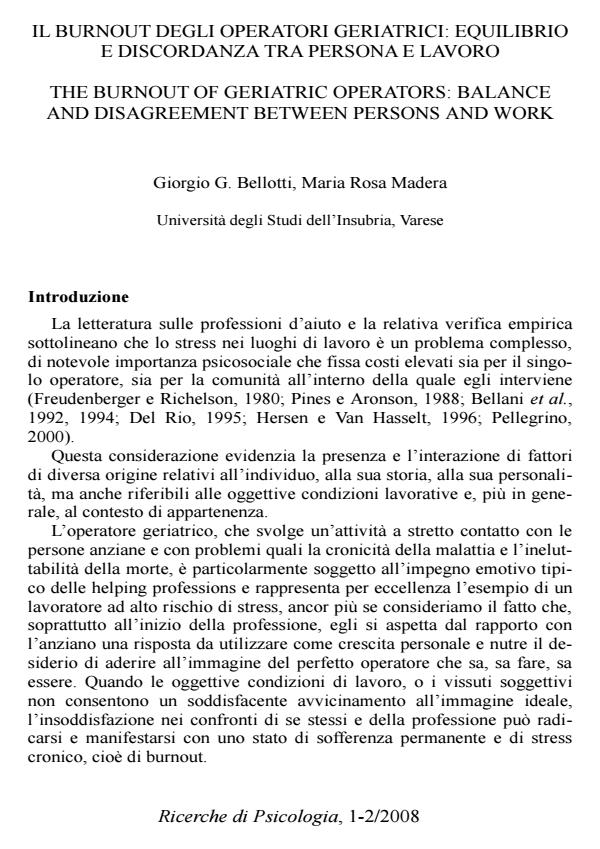Il burnout degli operatori geriatrici: equilibrio e discordanza tra persona e lavoro
Journal title RICERCHE DI PSICOLOGIA
Author/s Giorgio G. Bellotti, Maria Rosa Madera
Publishing Year 2008 Issue 2008/1-2
Language Italian Pages 10 P. 229-238 File size 262 KB
DOI
DOI is like a bar code for intellectual property: to have more infomation
click here
Below, you can see the article first page
If you want to buy this article in PDF format, you can do it, following the instructions to buy download credits

FrancoAngeli is member of Publishers International Linking Association, Inc (PILA), a not-for-profit association which run the CrossRef service enabling links to and from online scholarly content.
Il burnout degli operatori geriatrici: equilibrio e discordanza tra persona e lavoroJob burnout is a complex problem, which entails different factors whose origins are to be searched both within the individual and the objective work conditions; it does not arise suddenly, but it is rather subject to a gradual development. The aforementioned problem is a process characterized by symptoms that begin to emerge after a prolonged exposure to stressful work conditions; it evolves constantly and gradually and it manifests itself in the form of a chronic nervous breakdown, which then leads to cynicism and total detachment from work. The geriatric social worker, who is continuously faced with dilemmas such as illness chronicity, especially psychiatric disorders, gives us the example par excellence of a social worker, who is at high risk of suffering from job burnout and who requires the organization he works for to provide him with the support he needs and the possibility to share his experience. In the described experience, the effort made by the organization has appeared to be of high significance in reducing the discrepancy existing between the person and the job allowing the social worker to better adapt to the environment and to find a greater balance within the professional setting.
Giorgio G. Bellotti, Maria Rosa Madera, Il burnout degli operatori geriatrici: equilibrio e discordanza tra persona e lavoro in "RICERCHE DI PSICOLOGIA " 1-2/2008, pp 229-238, DOI: